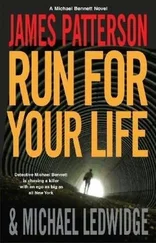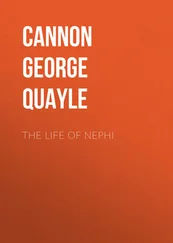Ran Chen - A Private Life
Здесь есть возможность читать онлайн «Ran Chen - A Private Life» весь текст электронной книги совершенно бесплатно (целиком полную версию без сокращений). В некоторых случаях можно слушать аудио, скачать через торрент в формате fb2 и присутствует краткое содержание. Жанр: Современная проза, на английском языке. Описание произведения, (предисловие) а так же отзывы посетителей доступны на портале библиотеки ЛибКат.
- Название:A Private Life
- Автор:
- Жанр:
- Год:неизвестен
- ISBN:нет данных
- Рейтинг книги:3 / 5. Голосов: 1
-
Избранное:Добавить в избранное
- Отзывы:
-
Ваша оценка:
A Private Life: краткое содержание, описание и аннотация
Предлагаем к чтению аннотацию, описание, краткое содержание или предисловие (зависит от того, что написал сам автор книги «A Private Life»). Если вы не нашли необходимую информацию о книге — напишите в комментариях, мы постараемся отыскать её.
"Sexuality has never been a problem with me. My problem is different. I am a fragment in a fragmented age." Despite this claim, the protagonist of Ran's unusual coming-of-age novel is defined by her precocious beauty and her struggle to define her sexual identity. Ran, one of China's most acclaimed contemporary women writers, tells how lovely Ni Niuniu is seduced before she enters puberty by an older woman, the sly, wise Widow Ho, then falls into an unwanted affair with her male teacher, Ti. In college, she meets the love of her life, a fellow student named Yin Nan, but their brief, passionate affair ends abruptly when Yin Nan becomes involved in the student protests in Tiananmen Square. Traumatized by the loss of Yin Nan and the deaths of her mother and Widow Ho, Niuniu retreats into her own mind, becoming Miss Nothing ("I no longer exist… I have disappeared…"). Niuniu's flaws, foibles and idiosyncrasies represent fertile ground for Chen's wide-ranging psychological character study. Even the more conventional scenes are narrated with lyrical intensity, and hallucinatory dream sequences and passages describing Niuniu's alienation range from the revelatory to the overwrought. The result is an uneven but intriguing novel that captures the heightened sensibility of a woman who flees the bustling contemporary world for the sensual pleasures of inner space.
From Booklist
The turbulent decades spanning the Chinese Cultural Revolution and the deadly demonstrations at Tiananmen Square provide the backdrop for this sensuous coming-of-age tale by Chinese essayist and short-story writer Chen. As a child, sensitive and gawky Ni Niuniu never quite fit in. Teased by her classmates and neglected by her cold, distant father, she engaged in quiet forms of rebellion (she once stole her father's woolen trousers and cut them off at the knees). While her father scarcely acknowledged her, other adults paid Ni Niuniu too much mind: her middle-school teacher, Ti, and an eccentric widower who lived next door each took sexual advantage of the impressionable young girl. Haunted by the past and despondent over the recent death of her mother and departure of her first love, Ni Niuniu retreats from the realities of politically charged Beijing, writing and drawing and endlessly soaking in her tub. Chen's first work to be translated into English provides an eloquent examination of the quest for calm in a chaotic world.
***
"Chen Ran's strikingly introspective, subjective, and individualized writing sets her work distinctively apart for the traditional and mainstream realism of the majority of contemporary Chinese writers… In his translation, Howard-Gibbon adeptly conveys the exquisiteness, richness, and slight eccentricity of Chen's prose." – China Daily
"The turbulent decades spanning the Chinese Cultural Revolution and the deadly demonstrations at Tiananmen Square provide the backdrop for this sensuous, coming-of-age tale by Chinese essayist and short-story writer Chen… Chen's first work to be translated into English provides an eloquent examination of the quest for calm in a chaotic world." – Booklist
"An intriguing exploration of the contemporary consciousness of an alienated, urban Chinese woman for whom current history matters less than the reliable comforts of love, nature, and solitude." – Kirkus Reviews
"Niuniu's flaws, foibles, and idiosyncrasies represent fertile ground for Chen's wide-ranging psychological character study… [an] intriguing novel that captures the heightened sensibility of a woman who flees the bustling contemporary world for the sensual pleasures of inner space." – Publishers Weekly
"In the novel A Private Life, Ran Chen immerses us in the troubled life of Ni Niuniu… Chen weaves together these evaluations with Niuniu's manic writings in order to create an ultra postmodern tale of a young woman's psychosocial evolution… an important portrait of a young woman trying to survive in a complicated world." – Bust Magazine
"A Private Life is not an overtly political book; rather, it has the timeless quality of most dreams. Still, [narrator] Ni Niuniu's refusal to connect with the world outside her door becomes a kind of political statement." – Elizabeth Gold, Washington Post
"An atmospheric story of sexual awakening and ennui that enlarges our understanding of modern China." – Vancouver Sun
"Niuniu's hatred of the few powerful males in her life and her sexual confusion and manipulations are clearly depicted." – Sofia A. Tangalos, Library Journal
"This polished and readable translation of the inaugural novel of Chen Ran stands as an example of the quasi-autobiographical Sino-Japanese shishosetsu" – Choice
"A riveting tale… a lyrical meditation on memory, sexuality, femininity, and the often arbitrary distinctions between madness and sanity." – Translation Review
"A Private Life shows Chen Ran at her best: weaving together the female bildungsroman and social and political satire, she effortlessly flits from outbursts of rage to ecstasy to rarefied emotions. Her philosophical musings on the difficulty of achieving individual freedom are as critical of the collective pursuit of wealth and sensorial pleasures in China after socialism as of the authoritarianism and ideological conformity during the heyday of the Cultural Revolution. The poignant, tragic-comic tale is ultimately about bondage and transcendence." – Tze-Lan D. Sang, author of The Emerging Lesbian: Female Same-Sex Desire in Modern China
"The novel daringly depicts a woman's emotional journey towards the maturation of her sexuality. It is a provocative reflection of the new sensibility of a young generation of Chinese women in the post-Deng era. Chen Ran's sensuous style easily breathes through the translator's English rendition of her language." – Lingchei Letty Chen, Washington University, St. Louis
"One of the most acclaimed women writers in contemporary China, Chen Ran in this novel explores the complex emotional territory of the female body, sexuality, homoeroticism, and fantasy. The author’s personal voice triumphs in the novel as a most conscious presence, dissolving the public and collective model of socialist literature. Daringly written and excellently translated, A Private Life not only entertains, but also leaves the reader pondering Chen’s disturbing and deeply personal message." – Lingzhen Wang, Brown University












